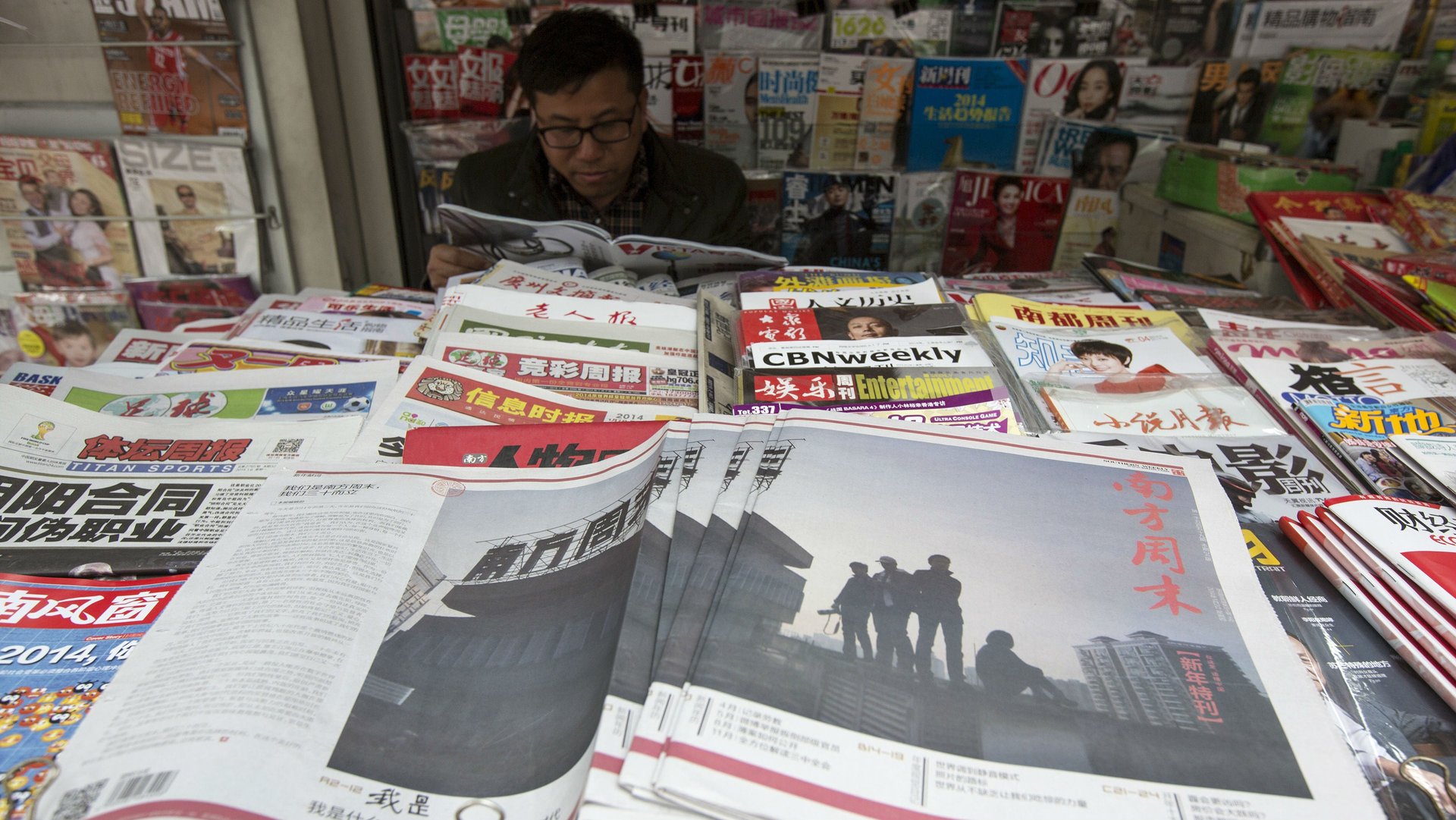China is planning a publication that’s digital only and in English—and state-controlled
For decades, China’s ruling Communist Party has controlled traditional media outlets, and used them to promote its policies and ideologies. Such control is harder with digital publications, but Beijing is changing with the times.


For decades, China’s ruling Communist Party has controlled traditional media outlets, and used them to promote its policies and ideologies. Such control is harder with digital publications, but Beijing is changing with the times.
The prime example of this is the Shanghai-based The Paper, launched in July 2014 to provide news about “politics and thought.” Not only is it digital only, but it’s also one of the first state-run outlets to offer an app version. Now The Paper is planning a similar product for foreigners, in English. Slated to launch in the first half of the year, it will offer original reporting on general news about China, spokesman Sun Xiang told Quartz. The name has not yet been decided upon.
The editorial team will come partly from The Paper, Sun says, but the publisher is also hiring more journalists to complete a team of around 20 to 30. A job posting describes the English-language platform as “committed to providing real-life news and stories about real-life China.”
Many publishers run by the local governments have set up their own digital news startup. Some have received financial help from big companies—including e-commerce giant Alibaba, which seems intent on building a media empire. One prominent example is Beijing-based Watching, launched in September 2015. Behind it is the government of the western Xinjiang region, with funding from Alibaba and the owner of Chinese financial magazine Cajing. It focuses on current affairs and business related to the nation’s “One Belt, One Road” initiative—a land-and-sea version of the fabled East-West Silk Road trading route that Xinjiang has a big stake in it.
But ultimately all Chinese media are owned by the government under a “big tree structure,” and digital publications are no exception, notes David Bandurski, a researcher and editor for the University of Hong Kong’s China Media Project. At the top is the People’s Daily, the party’s official mouthpiece. Further down, state and local governments run newspapers using “Daily” in the name—such as Guangming Daily. Many of those, in turn, own “spinoffs,” which Bandurski describes as ”more restrained media that are trying to do professional work when they can.” One example is the relatively outspoken Southern Weekly, a spinoff of Southern Daily, which covers Guangdong.
The state-run digital publications are likely to be among the more independent outlets in China’s media system, Bandurski tells Quartz. Still, he notes, “censorship is always the elephant of the room,” and unless they have “a real autonomy to make decisions on editorial but not political bases, their products will always be comprised and inconsistent.”